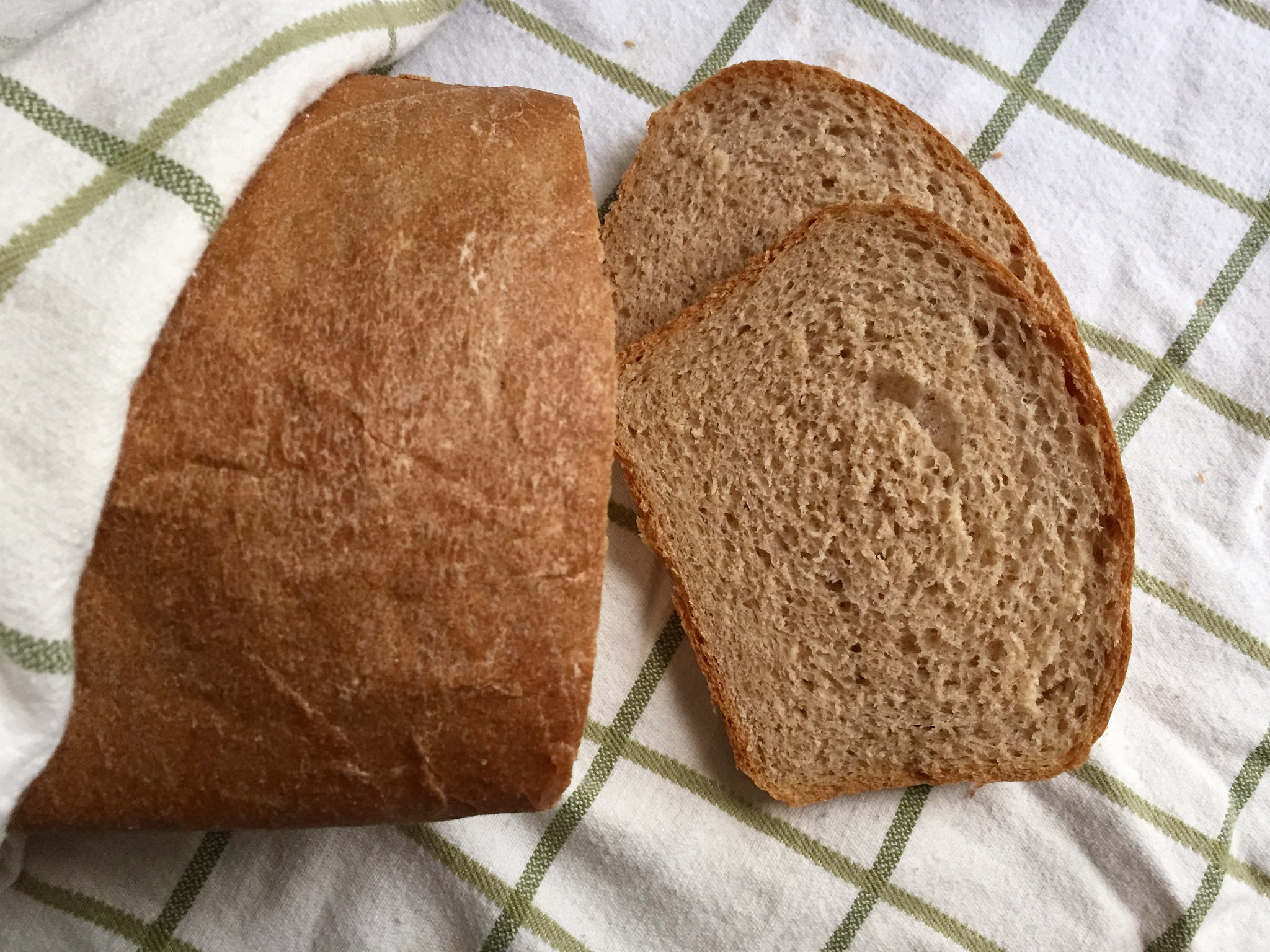I love a good loaf of something fancy and decadent. But on the average day, I usually just want a decent piece of wheat bread to toast up and slather with peanut butter. The nice thing about this recipe for light wheat bread is that it’s quick and fool-proof to make. Bread with whole wheat flour requires less dough kneading, and does best with a shorter fermentation time than white bread. This light wheat bread loaf won’t last as long as a store-bought loaf, but otherwise it looks and acts pretty much like something you’d buy at the store.
Last year The Kitchn ran a recipe for insanely decadent $10 toast, which featured a piece of homemade toast slathered in imported butter, artisanal jam, local honey, fresh peanut butter, sea salt and edible gold flakes. While I didn’t try it out myself, I also failed to realize that it was, in fact, a culinary April Fools’ Joke. However, it did make me consider different combinations of breakfast toast toppings. Who’s to say you have to choose between peanut butter and jam? Or that sea salt won’t balance out the sweetness of honey? I’ve ended up adopting the winning combo of chunky peanut butter, a drizzle of honey and a sprinkle of sea salt for my own toast (on days when I have time to make a multi-step breakfast, that is). It takes a relatively plain breakfast and adds just enough depth of flavor to elevate it from averagely edible to delicious. I highly recommend everyone give it a try!
Light Wheat Bread Recipe
Yields one 2 lb. loaf. From Peter Reinhart’s The Bread Baker’s Apprentice.
Ingredients
- 2.5 cups bread flour
- 1.5 cups whole-wheat flour
- 1.5 Tbsp honey
- 1.5 tsp salt
- 3 Tbsp powdered milk*
- 1.5 tsp instant yeast
- 2 Tbsp unsalted butter, room temperature
- 1.25 cups water, room temperature
*Don’t have powdered milk on hand? Take out 3 Tbsp water and substitute 3 Tbsp low-fat milk, adding it along with the other wet ingredients.
- Stir together dry ingredients in a mixing bowl. Add butter, honey and water and stir until the ingredients form a ball. If the dough isn’t coming together or seems too dry, add a little more water a few teaspoons at a time. Better that it’s a little too wet at this point rather than too dry.
- Turn dough out onto a floured counter and knead for about 10 minutes. The dough should be tacky but not sticky, and register 77ºF to 81ºF. Transfer to a lightly oiled bowl and cover with plastic wrap.
- Let rise for 1.5-2 hours, or until dough doubles in size.
- Turn dough out onto a lightly floured surface and press it into a rectangle about 6 inches wide and 8-10 inches long. Form the dough into a loaf by rolling it up, pressing the seam of the roll as you go to create surface tension (that’s how you’ll get a good crust). Transfer loaf to a lightly oiled (or buttered) loaf pan, mist with spray oil, then cover loosely with plastic wrap.
- Proof the loaf for about 90 minutes. The dough should crest above the lip of the pan, but shouldn’t swell so much that it overflows the pan. Preheat the oven to 350ºF when the loaf is almost ready.
- Put the pan in the oven and bake for 30 minutes, then rotate the pan 180 degrees and continue baking for another 15-30 minutes. When the bread is done it will be golden brown and sound hollow when thumped from the bottom.
- Remove the bread from the loaf pan immediately when you take it out of the oven and cool on a rack for at least 1 hour before slicing and serving.



